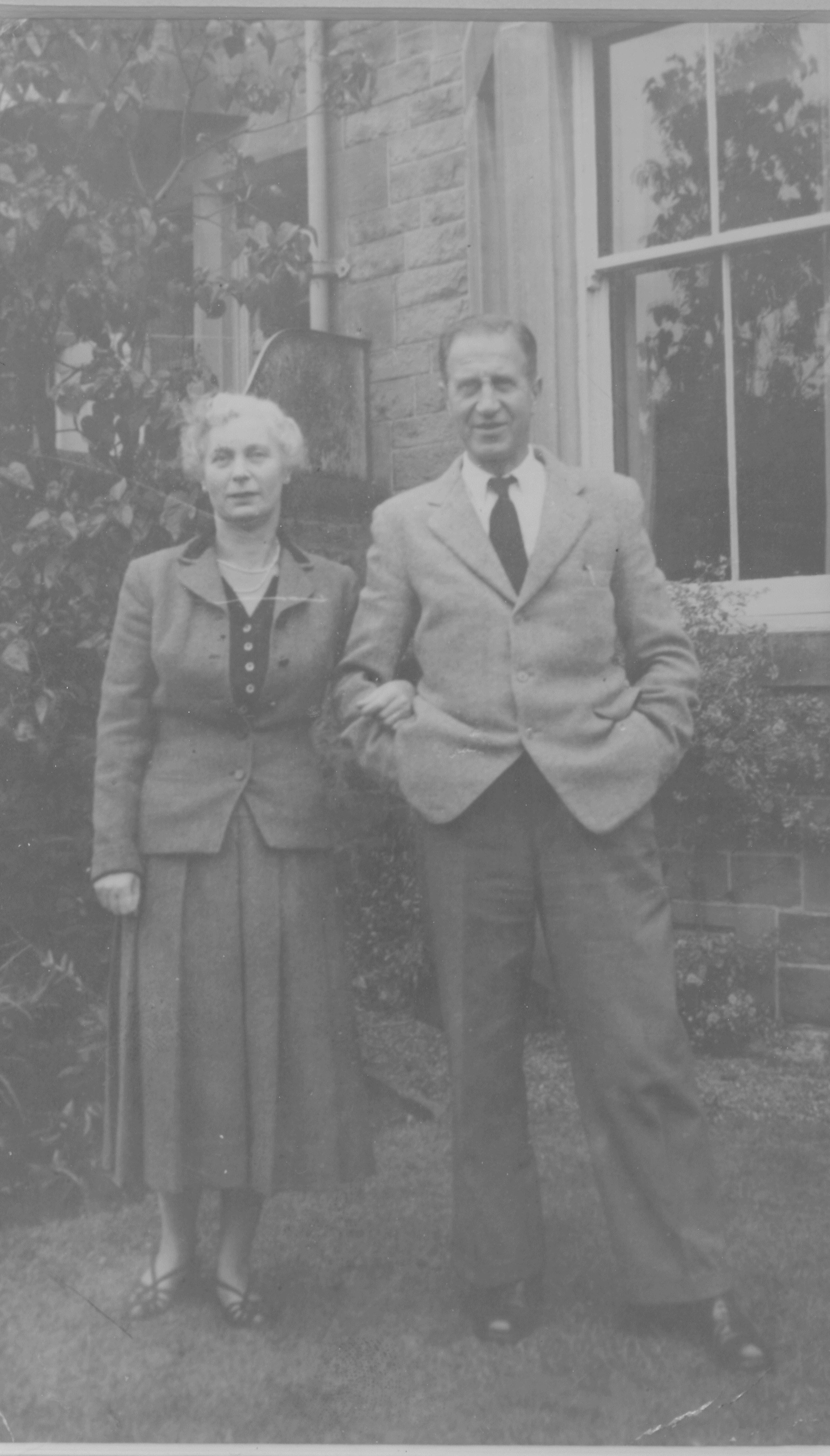If you speak to any active member of the S.M.A. about Edinburgh they will automatically think of, and almost certainly speak of, one person, Dr. Julius Lipetz, general practitioner, activist and model of activity. Those who have read these Profiles will have observed one thing the subjects have in common, that they are never men or women with one track minds or restricted interests. They are all featuring in these columns because they have given great service to the cause of health and have seemed to put every minute into that cause; but all have shown a wide interest and sympathy with the human race and all have had time for study, work and help in other human activities. Julius Lipetz follows the same pattern and follows it with an energy and persistence equalled by few.
He has done so without, too often, arousing bitter opposition and usually with such a return of affection that everywhere he is spoken of and addressed as “Julie”. He returns that affection in a variety of ways, the best and most frequent of which is to try to stimulate his friends not only to greater efforts but to greater depth in their political thinking. Throughout he leaves no one in any doubt that human activities have their best developments and their inspiration in Edinburgh.
Julius Lipetz was born in Edinburgh on 3rd October, 1903, where he was educated at the Royal High School. His education progressed but so did his ability on the playing field and he played for the first team in both rugby and cricket: and he kept up his interest in the latter for thirty years. He graduated at Edinburgh University in 1926 and after two years of hospital work joined his brother in practice in 1928. That practice still continues and has played its part in those G.P. activities which have made Edinburgh so important a place in the training of modern doctors. Practice, marriage and children occupied the next few years but Julius’s political awareness and activity were intensified by what was happening in Spain and in Europe. Medical politics soon came into his life and as the argument on health services became sharpened he and his brother were always in the forefront in discussions in the B.M.A. and in the newly formed Edinburgh S.M.A.
But all this was interrupted by World War II in which Dr. Lipetz with the rank of Captain served for nearly four years in the 8th Army. His battle front experience started in a casualty clearing station in North Africa and then as the allied armies moved, in Sicily. In Italv he was closely engaged at the battle of Monte Casino; and concluded his service with eight months in Palestine. Photographs of that period show he has changed very litt’-e and on his return to Edinburgh his activities were all resumed, with even greater vigour.
Julie makes no bones about how left wing his views in general are but they are tempered by a practical streak which wants results more than theories. The SMA in Edinburgh has held many meetings; conferences and demonstrations and all of them owe almost everything to Julie’s preparedness to work himself and to get others to work with him. His socialism means co-operation, co-operation to achieve a particular goal and he has, therefore, always understood that the working-class must not only learn to vote for policies, it must work for their policies. So the S.M.A.’s closest relationship in Edinburgh has been with the trade union movement in Scotland and with many other sections of the Labour and Co-operative movements. Speakers who have travelled to speak at an Edinburgh SMA meeting have all been amused (considering the meetings they have had elsewhere) at Julie’s deep regrets that he had only one hundred and twenty delegates present.
He might have liked one of his family to have gone into medicine and joined him in his practice but that is never how things work out. But the family could not escape from the continuous example of social responsibility which Julie gave them and the equally continuous example of care for human beings which their mother, Marjorie, gave them. So his daughter trained as a nurse in Edinburgh and in spite of a career interrupted by marriage and four children is once more working as a nurse in London and keeps up her interest in the SMA. One son is a social worker in Lambeth, an area of London where he must find many problem children, his speciality to deal with every day. Julie’s eldest son is an engineer with the Coal Board but he maintains the family interest in politics. Like the writer of this profile he very often does not quite agree with the stand his father takes on certain subjects; but all are united in the need for a better life for all their fellow men.
It would be interesting to do this tribute to an Edinburgh G.P. sitting invisible in his surgery, listening to his sympathy with, encouragement for, and sometimes orders to his patients. Whatever they needed he would give them to the fullest extent of which he was capable. So it has been in the SMA nationally and in Scotland. Whatever the SMA has in his view needed he has given to the full. Sometimes it has been anger and astonishment at other people’s slowness and lack of understanding, sometimes applause for jobs well done, but always work and more work for the great aim of his life, a health service better than he or anyone has yet been able to give. Edinburgh and the SMA would certainly have been poorer without him.
D.S.M.

